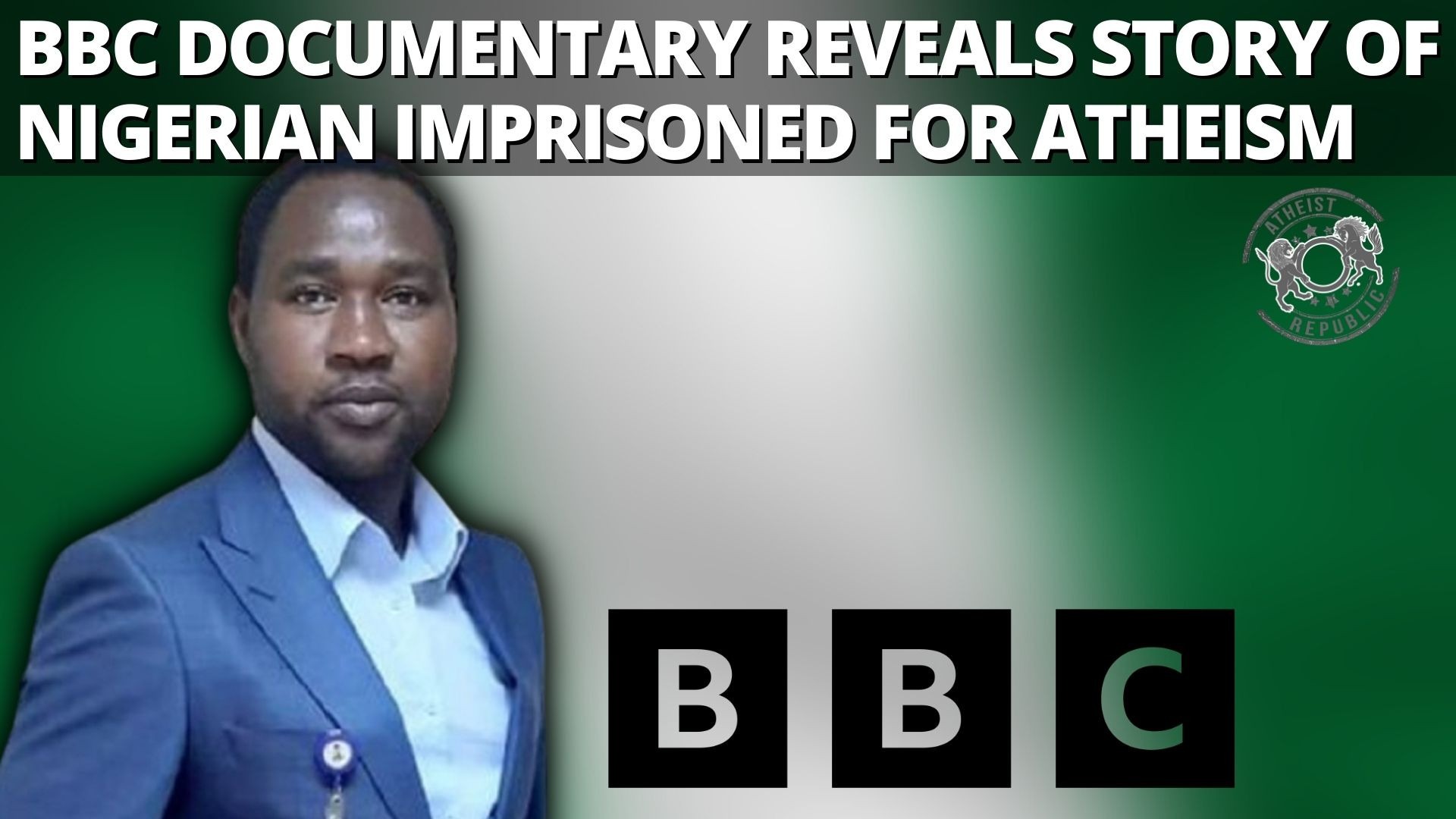
BBC Africa released a new documentary this week shedding light on the obstacles humanists and atheists face in Nigeria while telling the story of a Nigerian imprisoned for blasphemy charges.
The program, narrated by BBC journalist Yemisi Adegoke, documents Mubarak Bala’s landmark case, which reveals the threats to religious freedom and tolerance in the West African country.
The cost of being an atheist 7 Nov@briticoyemo investigates the case of Mubarak Bala, the president of the Humanist Association of Nigeria, who was sentenced to 24 years in prison for charges relating to blasphemy.
Subscribe so you don’t miss it https://t.co/k7gmp8Hgzh pic.twitter.com/3DkeQvwKn5— BBC News Africa (@BBCAfrica) November 5, 2022
She talked with other atheists, including Leo Igwe, the founding member of the Humanist Association of Nigeria and a board member of Humanist International. She also interviewed Amina Ahmed, Mubarak’s wife, and the lawyer who wrote the petition for his arrest.
Born to a Muslim religious scholar in the northern Nigerian state of Kano, 37-year-old Mubarak Bala left Islam in 2014 and was open with his atheist beliefs. He was forcibly held at a psychiatric hospital the same year after renouncing his faith. Mubarak Bala was also the President of the Humanist Association of Nigeria.
Nigerian atheist Mubarak Bala convicted of blasphemy https://t.co/cBHy2jkZvz
— BBC News (World) (@BBCWorld) November 8, 2022
On April 28, 2020, Mubarak Bala was arrested at his home in Kaduna after a local law firm filed a petition for his detention. The plea came after he posted criticisms of the Prophet Muhammad on his Facebook page. He was accused of violating Section 210 of Kano State’s Penal Code and Section 26 (1)(c) of the country’s Cybercrimes Act of 2015.
Bala was arbitrarily detained for more than a year, and authorities violated his right to a fair trial. He was also denied any legal counsel until October 2020. Nigeria’s Federal High Court ruled that his imprisonment was against the law and ordered authorities to release him on bail, to which they failed to comply.
Ruling by the High Court in Abuja. @MubarakBala was also award N250,000 by the Court. Now @PoliceNG should release Mubarak Bala without any further delayhttps://t.co/Yu8WBbW3km
— Humanist A Lagos (@HumanistALagos) December 21, 2020
According to his lawyer, James Ibori, Bala was denied healthcare access, kept in solitary confinement, and forced “to worship the Islamic way.” He was also detained for two years without any charges or trial.
Initially, Bala maintained his innocence as prosecutors of the Kano High Court accused him of breaching the public peace after his comments against the Prophet Muhammad. However, on April 2, 2022, Bala pleaded guilty to 18 charges of blasphemy, much to the surprise of his legal team and his supporters, who felt that Nigerian authorities pressed him to change his plea.
The Kano High Court sentenced Bala to 24 years in prison for violating Sections 210 and 114 of the Kano State Penal Code, not including the two years he spent in detention while awaiting trial. The court persisted that his trial was fair and that Bala could file an appeal. Although a secular court passed down the harsh ruling, Bala would have been punished with the death penalty if the trial had been done in an Islamic Sharia court.
Mubarak Bala faces 24 yrs in prison for sharing Facebook posts that were deemed “blasphemous” – a concerning development related to freedoms of expression, religion in Nigeria. #FreeMubarakBala https://t.co/2ksBjRB6Yv
— Freedom House (@freedomhouse) April 5, 2022
Many individuals and organizations in Nigeria and abroad expressed their concerns over Bala’s condition. For Leo Igwe, who was also a friend of Bala, humanists and atheists have become "potential criminals who can easily be thrown in jail just for expressing their views. Humanists have become endangered citizens of Nigeria."
